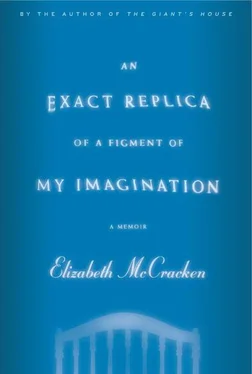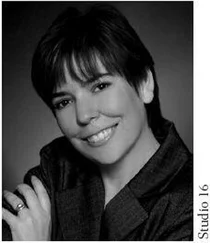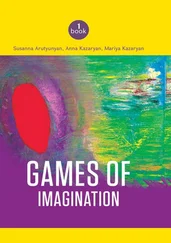But I didn’t. I could feel how uncomfortable my mere presence made people feel, and I couldn’t bear it. So I sat in this Indian restaurant and listened. Sometimes a piece of palaver came loose and shot straight toward me, and somehow I caught it and tossed it back.
All the while, all I could think was: Dead baby dead baby dead baby .
And I know everyone around that table was thinking the same thing, every single person.
I’ve never gotten over my discomfort at other people’s discomfort. When people say, What have you been up to, I hesitate. I will tell myself, Now, if this were a husband or father or sister who died, you wouldn’t simply omit the fact . If I say anything, people mostly change the subject anyway, and I can’t say that I blame them.
I’ve done it myself, when meeting the grief-struck. It’s as though the sad news is Rumpelstiltskin in reverse. To mention it by name is to conjure it up, not the grief but the experience itself: the mother’s suicide, the brother’s overdose, the multiple miscarriages. The sadder the news, the less likely people are to mention it. The moment I lost my innocence about such things, I saw how careless I’d been myself.
I don’t even know what I would have wanted someone to say. Not: It will be better. Not: You don’t think you’ll live through this, but you will. Maybe: Tomorrow you will spontaneously combust. Tomorrow, finally, your misery will turn to wax and heat and you will burn and melt till nothing is left in your chair but a greasy, childless smudge. That might have comforted me.
We’d chosen North Norfolk because Edward had grown up there. We’d rented the smallest four-bedroom house in the world: three of the bedrooms held only a single bed and a table. Edward shimmied a desk into one of the rooms; I wrote sitting up in bed in another. One of the ways in which we felt
— not lucky, not that word again —
Let me say we were glad we were free agents and could go somewhere neutral for several months, neither the place we’d lived while waiting for our child, nor the place we would spend the rest of our lives without him.
In that small Norfolk town, we spent one week drinking heavily and smoking, and then we gave ourselves a shake, switched to a fish diet, daily exercise, and work. We had time to kill; until the U.S. government sorted out Edward’s immigration application, he was not strictly speaking supposed to travel to the States. We were writers: we wrote. Edward worked on his enormous Parisian novel; I went back to a novel beginning I’d been fiddling around with before I was pregnant, which (I’d forgotten) featured a dead infant. Strangely enough, I was glad for that fictional baby who I’d in all innocence murdered (drowned in a bathtub) a year before: I couldn’t have made him up in my grief, but I could pour my grief into him. I wrote a hundred pages of the book and two new short stories; I worked harder and faster than I had in years. At night we watched movies, straight out of the care packages Ann sent me: all of Carole Lombard, all of Mae West, enough silly distraction to last the summer.
Some days were worse than others. For about a week I got the opening line of an Auden poem that I’d memorized in high school stuck in my head: About suffering they were never wrong, the Old Masters . . The poem describes the Breughel painting The Fall of Icarus, in which (as Auden explains) life goes on despite the tiny white legs kicking up in the corner of a harbor, Icarus sunk. My high school English teacher had explained that the myth was about hubris, ignoring the good advice of your wise father, but for me that summer the painting, the poem, everything, was about lost boys and the parents who’d failed them. One of the BBC channels was showing Steven Spielberg movies, mother after mother failing to protect her son: AI is bad, Empire of the Sun is worse, and E.T. the worst of all: I sobbed on the sofa at the end of it.
We ate local crab and local seaweed. We swam at Holkham Beach, an amazing stretch of sand that Edward remembered from his boyhood. We went to pubs. We saw children everywhere, of course, and babies. And Edward would always say, “I hope we can have another child,” and I would answer, “Me, too.”
Work, walks, wine. Our life as usual, having moved to a new place. We got to know our fishmonger and butcher and greengrocer, picked out our restaurants, opened a bottle of wine at 6:00 p.m. if we were cooking at home. On the one hand it was comforting and even lovely, especially the long walks we took along the Norfolk coast, and on the other hand the very usualness, the loveliness, the freedom to do what we wanted, was a kind of torture: look at your unencumbered selves. After most deaths, I imagine, the awfulness lies in how everything’s changed: you no longer recognize the form of your days. There’s a hole. It’s person-shaped and it follows you everywhere, to bed, to the dinner table, in the car.
For us what was killing was how nothing had changed. We’d been waiting to be transformed, and now here we were, back in our old life.
Years before I’d given away an antique postcard that said, beneath a drawing of a pine branch:
For thee I pine.
For thee I balsam.
(I regretted giving away that postcard almost immediately. The recipient didn’t deserve it. Me in a nutshell: I don’t regret a single instance of giving away my heart, but a novelty postcard with a really good pun? I still wish I hadn’t.)
Now I pined, and pined. I pictured myself: a pine tree. The trail of the lonesome pine. I saw myself green and leaning on the beach, inclined toward my unreachable darling. To be deciduous would be better. I could stand brown and brittle, and then naked, and then in the spring I would start over again.
Actually, that’s sort of what happened.
At the end of August we packed up the few things we’d brought with us to Holt. For the first time in our lives, we had not accumulated a single thing in a new country. We spent a few days in Suffolk, with Edward’s family, then a few days in London, then a few days in Boston. On September 5 we paid movers to clear out my vast storage space in Boston, all the things I hadn’t seen in four years, and we drove to Saratoga Springs. The rented house we’d arranged by e-mail months before (when Pudding was still alive) was in a bad state, with cigarette butts and condom wrappers and a fly-infested garbage can. The previous tenants had been smokers, and someone had tried to cover the smell with a quantity of Febreze, and then, when that failed, several spilled boxes of mothballs. Up until then we’d had good luck renting places sight unseen, so odds were it was time for us to land hard, but it felt like ominous luck. Moreover, the house belonged to a retired professor from the English Department who lived out of state, and I saw how quickly I could become a villain if I broke the lease. The movers arrived and unloaded our stuff into the house; we couldn’t figure out what else to do. When they finally left, I went upstairs to the bathroom and took the pregnancy test I’d been carrying around in my purse all day, and brought it down to the kitchen as it developed to show Edward.
Well, what do you know. This baby would be due in May.
But before this:
The day we left Holt we got up at 5:00 a.m. and drove to Holkham, the wide, bowl-shaped beach of Edward’s childhood and of our summer. On the way there, hares jumped along the side of the roads — early risers? going home to their burrows after a night of hell-raising? — and I prayed I wouldn’t hit one, that this wouldn’t be the first day I struck something living with a car. I didn’t believe in omens anymore, but still. We worried that someone else would have beat us to the beach. In England there’s always some preposterous superannuated sweetheart with a dog tramping along. But we walked through the scrub pines to the sand and then over the great expanse of sand to the water’s edge all alone.
Читать дальше












